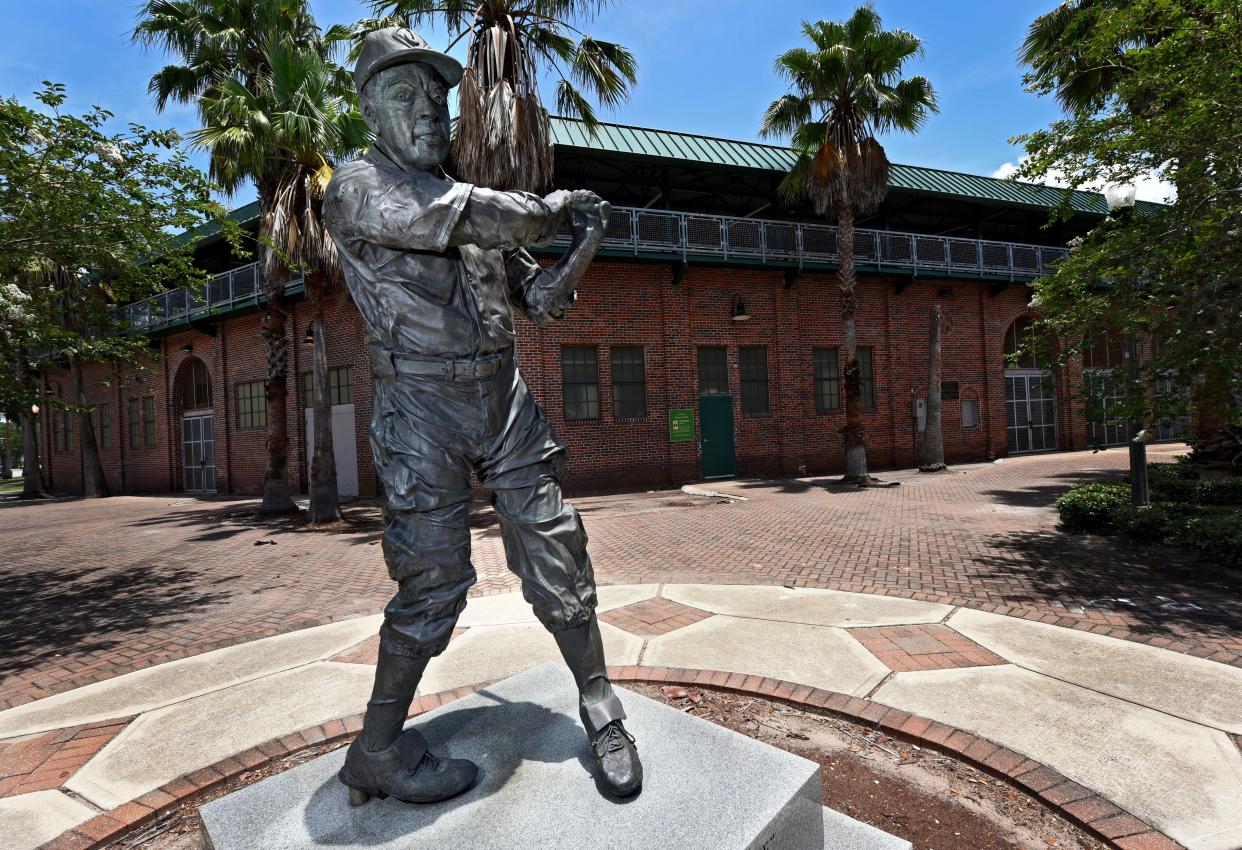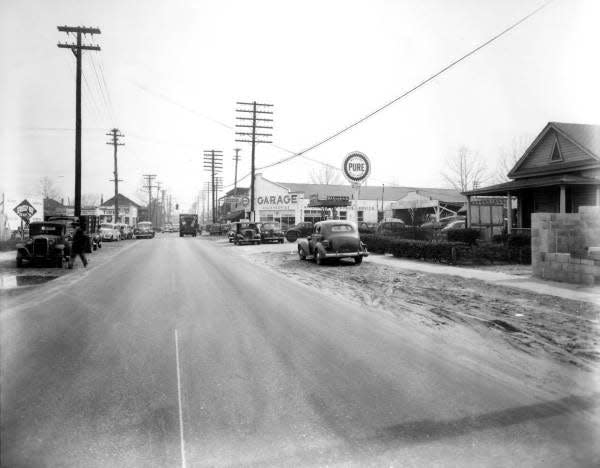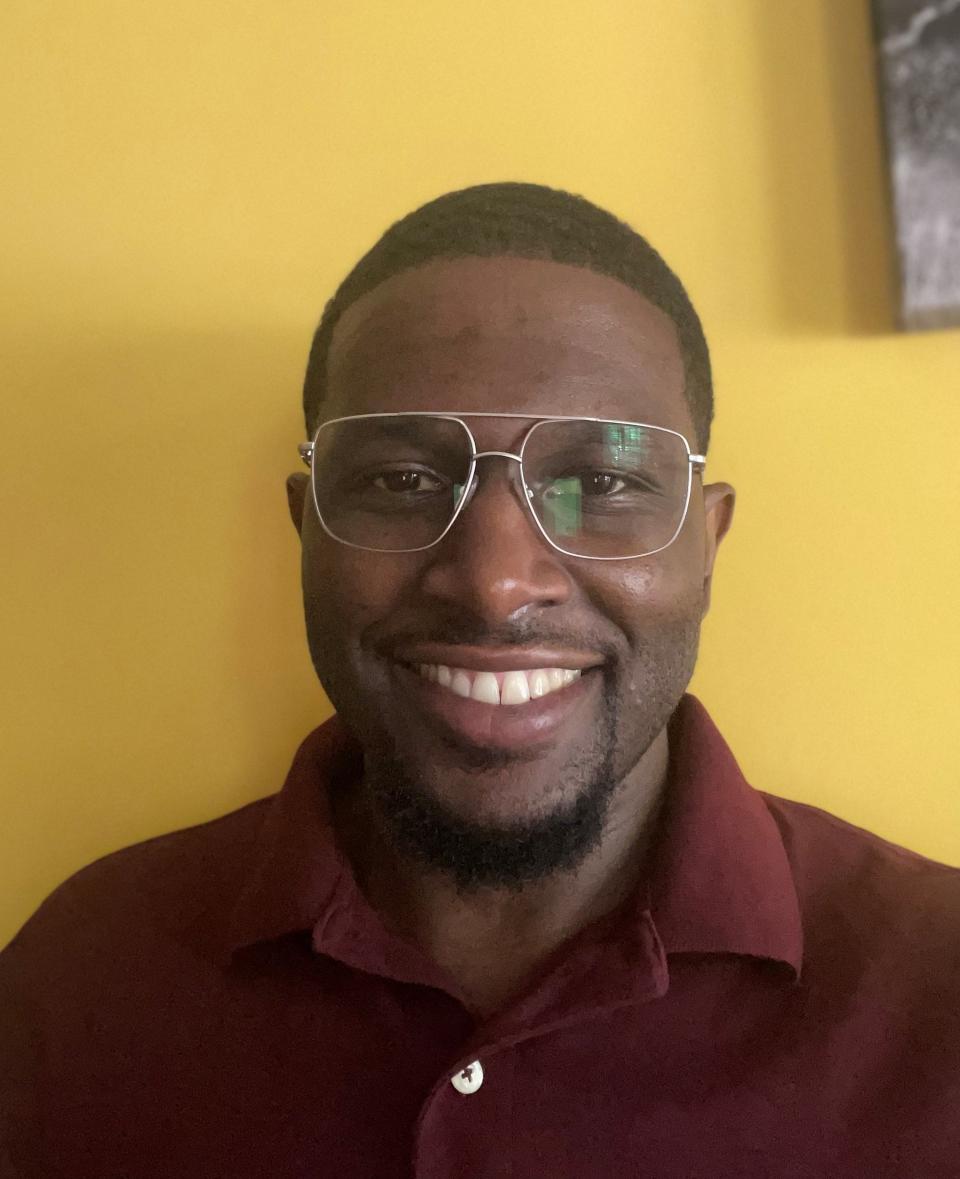Larry Rencher: Durkeeville museum keeps community history alive for next 100 years

- Oops!Something went wrong.Please try again later.
Having lived in Jacksonville for more than a decade, walking through the doors of the Durkeeville Historical Society allowed me to see a version of the city I never knew existed. In fact, I later realized that even most residents who were born and raised here most likely also had no knowledge of Durkeeville's rich and influential history.
On my first visit, I met Mr. Lloyd Washington, the president of the Durkeeville Historical Society. I soon began what has been a life-altering journey to an extraordinary bygone era. Mr. Washington, a lifelong resident of the community, passionately brings each exhibit to life with vast knowledge of the individuals who made significant contributions. The museum exhibited dignified pictures of musical influences, artists, politicians and athletes from a thriving Durkeeville community.
On my second visit, Mr. Washington introduced me to some of the community's original residents. They generously shared their stories of a time when Myrtle Avenue was Jacksonville's "Black Wall Street," where Black-owned businesses lined the streets and the community thrived.
Tiger in the Hall: Buck O'Neil, former Edward Waters College standout, among Baseball Hall of Fame honorees
Mark Woods: Labor Day a natural time to remember A. Philip Randolph
Letters: Millage change can help with teacher shortage in Duval public schools
One of the notables of the business sector of the day was Mr. Abraham Lewis, Florida's first Black millionaire. He founded the Afro-American Life insurance company on Union Street, known for supporting Black families, ensuring they obtained life insurance and mortgages.
Beyond creating this system of historic financial equity, Mr. Lewis was also responsible for establishing American Beach, providing Black families with safe recreational activities during the era of segregation. One of the more exciting things I learned was that James Weldon Johnson was part of a group of influential Black writers during the Harlem Renaissance. He was also a former resident of Durkeeville and a member of the recreational baseball teams.
Beyond being the industrial sector of the Black community, Durkeeville was also critical to the social scene of the day, hosting the Florida Classic between Bethune-Cookman and Florida A&M at J.P Smalls Field. Many folks shared memories of witnessing Negro League Baseball games where hometown heroes played — the Jacksonville Red Caps. Plus, former major league home run king Hank Aaron played for the team in the 1950s.

Durkeeville is no longer the thriving community it once was due to urban decay, poverty and crime. I've barely touched the surface of the history available at the Durkeeville museum and encourage all to attend.
The sacrifices and struggles of those residents who founded Durkeeville in hopes of creating a safe space to call their own cannot be forgotten. The trailblazers, trendsetters and influencers of yesterday should have their accomplishments recognized by those of today.
As I continue learning about Durkeeville and speaking to those who were there from the beginning, I pledge my time, energy and effort to bring awareness and have the Jacksonville community visit the museum to engage in its history. If you're a local artist, sports fan or political activist, Durkeeville has pioneers from all walks of life.

As we celebrate the bicentennial of Jacksonville this year, the next 100 years should ensure that all future generations experience the Durkeeville tour. As we know, history helps build empathy through studying the lives and struggles of others.
Larry Rencher, Jacksonville
This guest column is the opinion of the author and does not necessarily represent the views of the Times-Union. We welcome a diversity of opinions.
This article originally appeared on Florida Times-Union: Larry Rencher: Durkeeville museum keeps history alive for next 100 years

